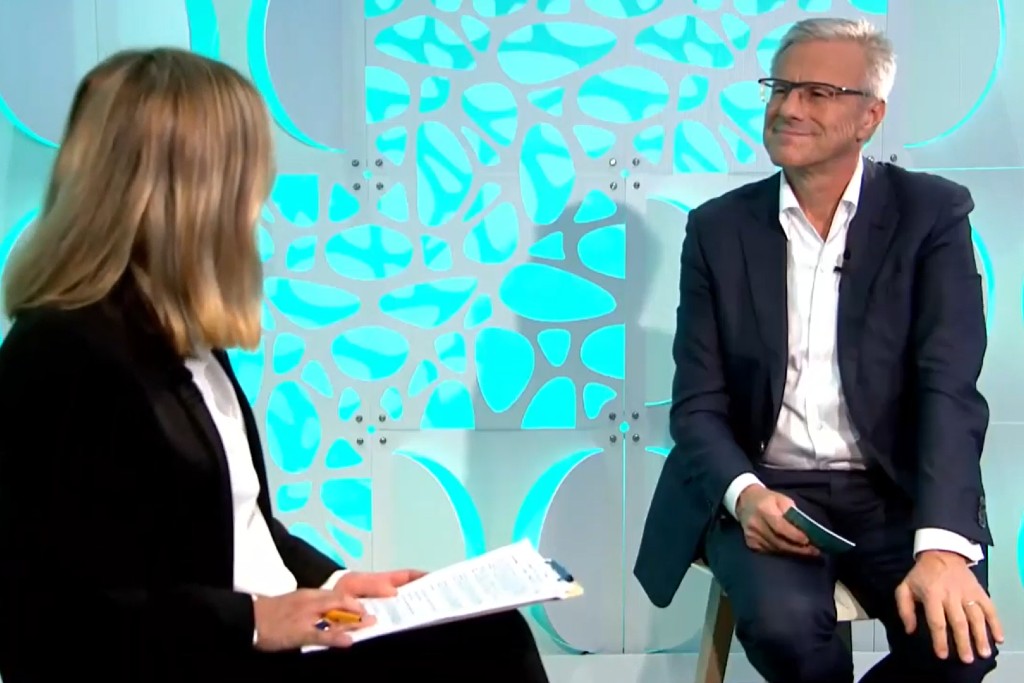This article was authored by Jordan Topoleski, Global CEO for One Month. The program is run by the Adecco Group Foundation.
For future leaders, money is no longer the sole driving factor behind their work.
Young people entering today’s workforce want more than a means to survive. More than ever, young workers are strongly motivated by a desire to contribute, to provide solutions, and to improve how things are done. They want to learn and grow, and they want to apply their skills to organizational goals they believe add value to the world.
With the ever-changing world of work, it’s important to remember the workforce is a sum of the people who comprise it – including their goals and values, which are the main indicators of where business will go and the problems it will strive to solve. Finding out what inspires young people and what drives them to work is therefore a key and complex question.
So how can leaders attract and retain young talent and provide the right motivation for them to excel in their careers? Let’s dive in.
Time of exploration
Today’s young workers are innovators – it’s the foundation of who they are. They’re constantly asking “why”: why things are being done, why they are being done in a particular way, whether processes can be improved, whether activities are creating good or causing inadvertent harm.
And with the unusual circumstances the Covid pandemic has presented over the past few years, this has only become more true. Young people have been forced to explore new opportunities, engage in untraditional experiences, embrace new challenges, and take on a mindset of adaptability.
Compounding this, the world of work has also seen an acceleration of change, particularly in the increase of remote and hybrid forms of work. This has presented an entirely new set of challenges in providing the right motivators for young leaders unable to find pathways of mentorship and in-person networking opportunities. While already new to the world of work, young talent has also had to learn alongside the rest of the world in transitioning to work from home.
At the same time, this quickly changing work environment has also had some hidden benefits. Young leaders got used to working more independently and experienced more autonomy. They took charge and got used to finding fulfilment and motivation on their own. Young workers found paths to intrinsic reward out of necessity in ways that didn’t occur pre-Covid. And, indeed, these are valuable competencies.
As the world grows accustomed to functioning without such a strong contingence on geographical location as before, the opportunities for meaningful work have also grown exponentially. Remote work is here to stay, and industries are adapting to that fact. This means there are more opportunities for young people, making it even more important to understand how to provide a fulfilling work experience.
Fulfilment in purpose, not just money
So, what does this mean? Young workers are equipped with a fulfilment mindset focused on whether they are learning and feeling challenged; they want to experience a feel-good factor in terms of what they are contributing to with their work. They understand the importance of good mental health, and they prioritize this feeling of value and worth in their job to avoid burnout.
Now this isn’t to say money is no longer important to young professionals, but rather that it isn’t the main driver for attracting and retaining talent in this hyper-competitive labor market. Just look to growth the so-called creator economy as an example of how young people are redefining the worth of their time and skillsets.
Technology and a renewed emphasis on the value of following your passion has paved the way for a new way of earning: create something you care about and make money from it.
The collaboration of ideas and the space to contribute individual creative input is of high importance. Young people want to be part of the big-picture; rather than serve a narrow function, they want to understand the entire scope, to think about how processes can be improved, how work can be done smarter, how questions surrounding social responsibility and inclusion in the workplace can be addressed. Young talent is asking questions and they value transparency.
My challenge to leaders
As this era of young, ambitious talent continues to enter the workforce, what drives and inspires them most is this sense of purpose. And I challenge employers today to find ways to add value to any role within their organization. After all, it is the measure by which young people evaluate opportunities and qualify how their time is being spent.
Every company has a purpose, but that isn’t enough. Leaders must find opportunities to tie jobs and experiences to this purpose, displaying to candidates how they can create value, express their autonomy, and learn within the company’s environment. Doing so will unlock a tremendous opportunity for organizations to create a win-win situation: employees driven by a desire to learn, to impact, and to improve will bolster innovation and creativity in the environments that they work.
Opening our imaginations as leaders to the mindset shift young people have experienced, fueled by the Covid pandemic and an increasing adoption of technology, is key to attracting talent. We should take advantage of the new approaches we can now take, striving to be more inclusive in the decisions we make in the workplace and more transparent with the information and considerations on which we base these decisions. In doing so, everyone can contribute their knowledge and feel like they are a part of a mission. This will make way for innovation and extend motivation to all who work with us.



